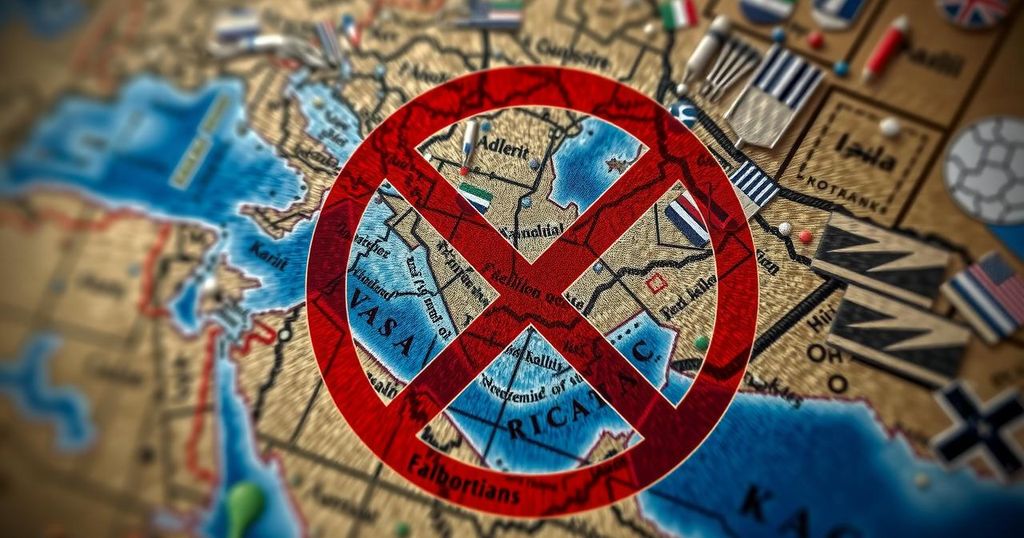Iran’s Neighbors Commit to Not Allowing Attacks Against Iran from Their Territories
Iran asserts that its neighboring countries will not allow their territories to be utilized for attacks against the nation, in light of recent missile strikes on Israel and potential retaliatory actions being considered by Israel. U.S. President Biden’s acknowledgment of Israeli military plans has further increased tensions, with Iran warning the United States of full responsibility for any aggression.
In recent statements, Iranian Foreign Minister Abbas Araghchi conveyed assurances from neighboring countries that they would not permit the use of their land or airspace for any attacks against Iran. This declaration came in the context of heightened tensions following Iran’s missile strike on Israel on October 1, which involved the launch of approximately 200 ballistic missiles. The statements were made during a press conference in Kuwait, emphasizing the diplomatic assurances received from regional allies amidst rising concerns over Israel’s potential retaliatory actions. Amid these developments, tensions have escalated between Iran and the United States as well. Following U.S. President Joe Biden’s acknowledgment of specific Israeli military plans, Iranian officials warned that the U.S. would be held ‘fully responsible’ for any aggression directed at Iran by Israel. Iranian Ambassador to the United Nations, Amir Saeid Iravani, referred to Biden’s remarks as “profoundly alarming and provocative,” indicating that the U.S. supports Israel’s actions against Iran. In light of the situation, Israeli Prime Minister Benjamin Netanyahu has reportedly communicated to President Biden his intention to target Iranian military installations without affecting nuclear or oil assets. Furthermore, Iran has declared its intolerance for threats emanating from neighboring Iraq, pointing towards an increasingly precarious regional stability. The ongoing conflict involving Hamas and Hezbollah has further complicated the diplomatic landscape, raising fears of a broader military confrontation in the region in response to recent escalations.
The article focuses on the escalating tensions in the Middle East, particularly the relationship between Iran and its neighboring countries following military provocations. It highlights Iran’s recent missile barrage against Israel and the subsequent warnings issued by Iranian officials regarding potential retaliatory measures from Israel, potentially backed by the United States. This context underscores the fragile security environment in the region and the importance of diplomatic assurances from neighboring states concerning the use of their territories for military action.
In conclusion, Iran’s Foreign Minister has reiterated that neighboring countries will not permit their territories to be utilized for aggressive actions against Iran, amid heightened tensions following Iran’s missile attacks on Israel. The diplomatic engagements are crucial in maintaining regional stability, particularly as the U.S. is perceived as facilitating Israeli military responses. The complex interplay of military actions and diplomatic assurances plays a significant role in the ongoing dynamics of Middle Eastern security.
Original Source: jordantimes.com




Post Comment